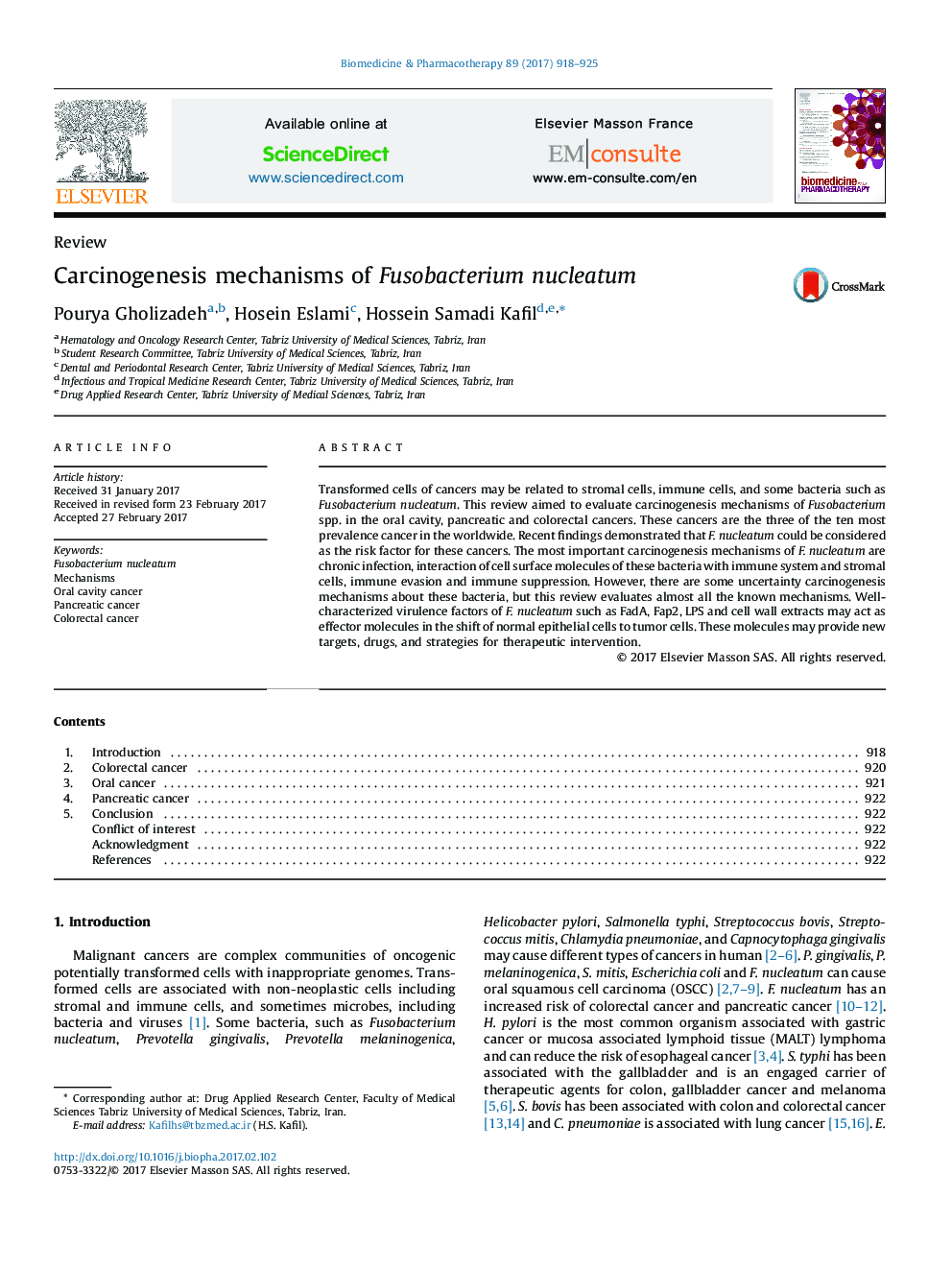| Article ID | Journal | Published Year | Pages | File Type |
|---|---|---|---|---|
| 5553212 | Biomedicine & Pharmacotherapy | 2017 | 8 Pages |
Transformed cells of cancers may be related to stromal cells, immune cells, and some bacteria such as Fusobacterium nucleatum. This review aimed to evaluate carcinogenesis mechanisms of Fusobacterium spp. in the oral cavity, pancreatic and colorectal cancers. These cancers are the three of the ten most prevalence cancer in the worldwide. Recent findings demonstrated that F. nucleatum could be considered as the risk factor for these cancers. The most important carcinogenesis mechanisms of F. nucleatum are chronic infection, interaction of cell surface molecules of these bacteria with immune system and stromal cells, immune evasion and immune suppression. However, there are some uncertainty carcinogenesis mechanisms about these bacteria, but this review evaluates almost all the known mechanisms. Well-characterized virulence factors of F. nucleatum such as FadA, Fap2, LPS and cell wall extracts may act as effector molecules in the shift of normal epithelial cells to tumor cells. These molecules may provide new targets, drugs, and strategies for therapeutic intervention.
